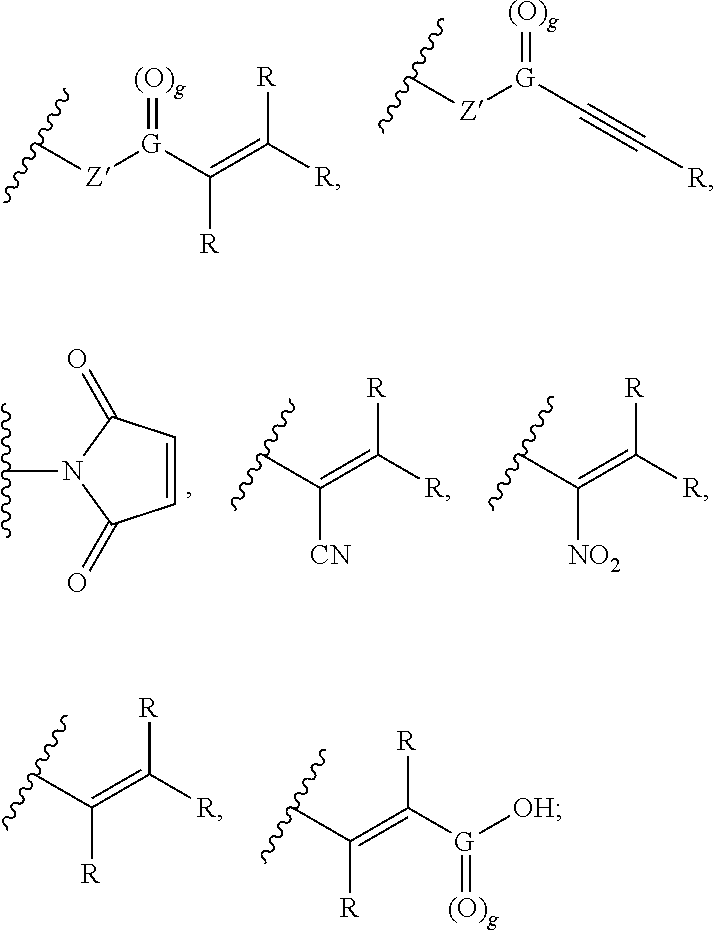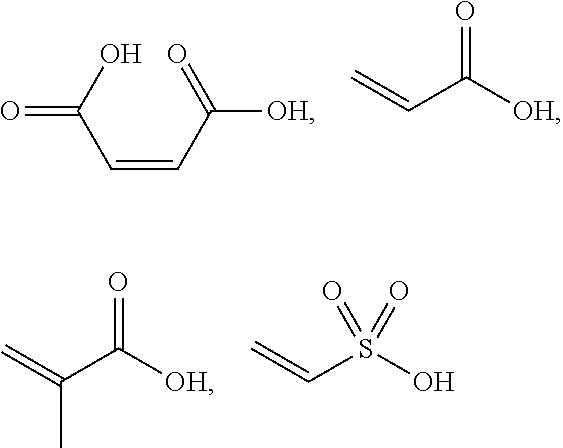Keratin treatment formulations and methods
a technology of keratin and formulation, applied in the field of formulations and methods for treating keratin, can solve the problems of reversing hair style, reducing treatment effect, and slow oxidation step, and achieve the effect of reducing treatmen
- Summary
- Abstract
- Description
- Claims
- Application Information
AI Technical Summary
Benefits of technology
Problems solved by technology
Method used
Image
Examples
example 1
Color Retention and Texture of Colored Hair Treated with the Active Agent Formulation
[0170]General
[0171]Three hair samples were obtained from a human subject and cut in ½ inch wide wefts.
[0172]Coloring formulation: The permanent hair coloring formulation was obtained from a L′Oreal® permanent hair coloring service (L′Oreal® Majirel permanent color #10 with 20 volume peroxide).
[0173]Active agent formulation: Maleic acid, at a concentration of 200 mg in 10 g total solution (water) was used.
[0174]Methods
[0175]The hair samples were washed with a clarifying shampoo then towel dried. The samples were then colored with the L′Oreal® permanent hair color service, which was left on the hair samples for approximately 35-40 minutes.
[0176]The first color treated hair sample (“control”) was subsequently rinsed and washed with Liqwd® Hydrating Shampoo and Conditioner five times before being photographed.
[0177]The active agent formulation was applied to the second and third color treated hair sampl...
example 2
Comparison of Color Retention in Traditionally Permed Hair and Hair Permed Using the Active Agent Formulations
[0180]Method
[0181]A ½ inch wide weft of hair sample, obtained from a human subject, was washed with clarifying shampoo then towel dried. Ammonium thioglycolate or dithiothreitol was mechanically pulled through the hair with a wide and a fine toothcomb several times then left on the hair for 10 minutes to 1 hour. The hair was then rinsed for 30 seconds to 1 minute with water, and then towel dried.
[0182]The active agent formulation, described in Example 1 (Maleic acid in water), was then applied via a needle nose applicator drenching the hair and leaving it on for 7.5 minutes. This step was repeated, for a total of 15 minutes. The hair was then rinsed for 1-2 minutes, shampooed, and then conditioned with various salon shampoo and conditioner brands, including LiQWd® Hydrating Shampoo and Hydrating Conditioner.
[0183]A second sample of hair was straightened, as described above, ...
example 3
Comparison of Hair Treated with Highlighting Formulation Applied Simultaneously with Active Agent Formulation and Hair Treated with Highlighting Formulation Alone
[0188]The active agent formulation in Example 1 contained maleic acid at concentrations of 2.0 g in 10 g total solution (water).
[0189]Two swatches of human hair were tested. A sample was taken from the same head, 1 inch wide, and split in half. The color was medium brown and had been previously color treated with an unknown professional hair color.
[0190]Swatch 1, ½ inch wide and 8 inches long, was lightened with traditional highlighting ingredients mixed with the active agent formulation. 1 oz of Joico Verocolor Veroxide developer-20 volume was mixed with 1 oz Joico Verolight powder bleach to form the highlighting formulation. Then 9 mL of the active agent formulation was added to the highlighting formulation to form a mixture.
[0191]The mixture was applied on the Swatch 1 hair with an applicator brush as the hair lay on alu...
PUM
| Property | Measurement | Unit |
|---|---|---|
| pH | aaaaa | aaaaa |
| pH | aaaaa | aaaaa |
| pH | aaaaa | aaaaa |
Abstract
Description
Claims
Application Information
 Login to View More
Login to View More - R&D
- Intellectual Property
- Life Sciences
- Materials
- Tech Scout
- Unparalleled Data Quality
- Higher Quality Content
- 60% Fewer Hallucinations
Browse by: Latest US Patents, China's latest patents, Technical Efficacy Thesaurus, Application Domain, Technology Topic, Popular Technical Reports.
© 2025 PatSnap. All rights reserved.Legal|Privacy policy|Modern Slavery Act Transparency Statement|Sitemap|About US| Contact US: help@patsnap.com



